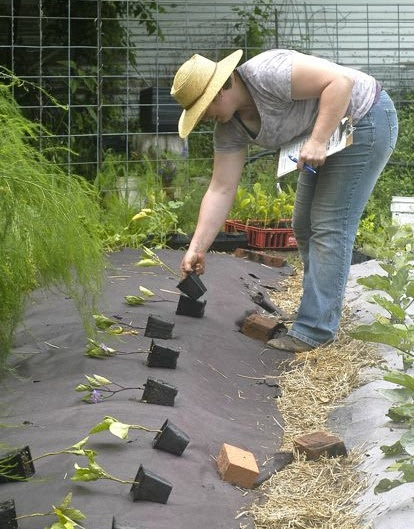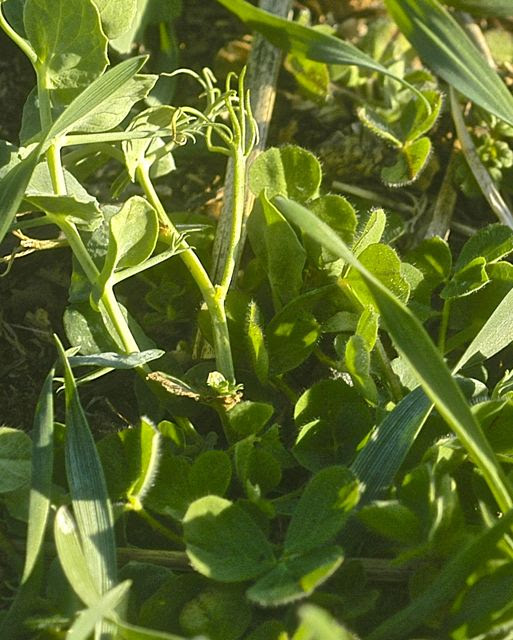Calling All Apprentices!
Are you hungry to learn how to grow food sustainably? Do you have a secret dream to be an urban farmer? If so, we have an 
opportunity for you!
CommonWealth now offers an apprenticeship program for anyone excited about urban farming, or for home gardeners who want to step up their knowledge to the next level.
Apprentices commit to volunteer 8 hours per week for 3 months; first session starts in March. We also offer a Youth Apprenticeship program for high school students. Deadline for application is Feb. 20th. Details are on our website: 2017 Apprenticeship Program.
 Our teaching method is hands-on. For each new skill and task, we’ll show you how to do it, supervise you while you learn, then give you a chance to demonstrate your skill and eventually teach it others. We want apprentices to learn new skills, and learn them well!
Our teaching method is hands-on. For each new skill and task, we’ll show you how to do it, supervise you while you learn, then give you a chance to demonstrate your skill and eventually teach it others. We want apprentices to learn new skills, and learn them well!
Our staff has decades of experience in home gardening, community gardening and market gardening. We offer the opportunity for you to work alongside us, and learn about planning, planting, harvesting, marketing, community relations, pest and disease prevention, soil health, composting, bio-remediation, food forests, rainwater harvesting, and more!
Details and application form on our website, or email us if you have questions.
Slow Flowers Valentine Gifts
 appreciation of what is local, seasonal, sustainable and beautiful. To show your appreciation for your sweetheart who loves local, gift them with a season membership or a coupon for bouquets to be redeemed May-October! Memberships are available to pick up every week or every other week; coupons for five bouquets during the season. To make your purchase, visit our Slow Flowers page here.
appreciation of what is local, seasonal, sustainable and beautiful. To show your appreciation for your sweetheart who loves local, gift them with a season membership or a coupon for bouquets to be redeemed May-October! Memberships are available to pick up every week or every other week; coupons for five bouquets during the season. To make your purchase, visit our Slow Flowers page here.
Customer Spotlight: The Red Cup
This year, The Red Cup, our closest restaurant customer (only a quarter of a mile away!) will celebrate its 22nd year in business. With an eclectic and cozy interior that welcomes each person as they walk through the door, Red Cup is a  neighborhood institution focusing on plant-based cuisine. While they don’t have a completely vegan menu, they do restrict the amount of animal products they use and use only local eggs and cheese. Chef Patrick Clark has been with Red Cup for about nine years and emphasizes that they only put items on the menu if it’s something the staff likes, resulting in unique twists on classic dishes like a smothered burrito made with cashew cheese or “The Egghead”—an egg and cheese sandwich with avocado, tomato, and fresh CommonWealth greens!
neighborhood institution focusing on plant-based cuisine. While they don’t have a completely vegan menu, they do restrict the amount of animal products they use and use only local eggs and cheese. Chef Patrick Clark has been with Red Cup for about nine years and emphasizes that they only put items on the menu if it’s something the staff likes, resulting in unique twists on classic dishes like a smothered burrito made with cashew cheese or “The Egghead”—an egg and cheese sandwich with avocado, tomato, and fresh CommonWealth greens!
We love customers who appreciate our products and may not receive a higher compliment than Patrick’s opinion that, “Anything that is grown through CommonWealth is a tiny masterpiece.The produce is on a much higher level than any other farm I’ve experienced in Oklahoma.”
Next time you have a craving for great, local food make sure you check out The Red Cup!
Veggie Spotlight: Feeding the Soil
 Our urban farm rests upon a tiny land base – we have just under 1/6 of an acre in vegetables. So we work that space intensively! Our beautiful soil produces an astonishing amount of produce to nourish us. In turn, we do our best to nourish the soil. We can’t expect continued high production without giving something back. That’s why we add a couple tons (literally!) of our homemade compost every year—and, we grow cover crops.
Our urban farm rests upon a tiny land base – we have just under 1/6 of an acre in vegetables. So we work that space intensively! Our beautiful soil produces an astonishing amount of produce to nourish us. In turn, we do our best to nourish the soil. We can’t expect continued high production without giving something back. That’s why we add a couple tons (literally!) of our homemade compost every year—and, we grow cover crops.
What are cover crops? They’re vegetables that we grow to feed the soil. Winter is a great time to grow cover crops, as many of them are very cold tolerant. The photo here shows crimson clover (center bottom), winter rye (looks like grass) and Austrian winter peas (upper left; taller stem with tendrils.)
Clover and peas are legumes, which have a unique ability to “fix nitrogen.” What does that mean? Legumes grow in a special relationship with soil-dwelling bacteria. Those bacteria take nitrogen from the air (free!) and feed it to the legumes; in exchange the legume plant provides carbohydrates to the bacteria. Win-win for everybody. Actually, it’s a triple-win. When the legume plant dies, the nitrogen is released, making it available to other plants. This is one of those “How the heck did Nature get so smart?” kind of things. Hmmm…shall I go to the store and buy bags of fertilizer, or shall I just toss down some clover seeds and let nature do the work?
Winter rye adds organic matter to the soil; each plant has 380 miles combined of roots and root hairs, which break up heavy clay soil. Cover crops also protect soil from erosion, provide habitat for beneficial insects, and prevent weeds from taking over. We mix six or seven different cover crop seeds and plant them all together in October. That way we get the benefits that each offers, and a synergistic effect from growing them all together. For example, fast-growing winter rye gives a protected environment for slower growing hairy vetch.
Cover crops are THE cheapest and most effective way to improve your soil. A dollar’s worth of seed will cover a 10′ x 10′ patch of garden. We turned the heavy red clay of my front yard into fertile, deep brown, loose soil in 3 years, simply by planting cover crops every year and turning them back into the soil at season end. I wouldn’t have believed it if I hadn’t seen it. Come by sometime and I’ll show you!—Lia
